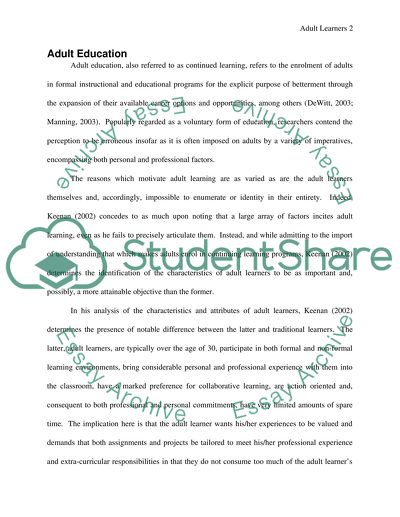Cite this document
(“Research Paper: Adult Education Essay Example | Topics and Well Written Essays - 2500 words”, n.d.)
Research Paper: Adult Education Essay Example | Topics and Well Written Essays - 2500 words. Retrieved from https://studentshare.org/miscellaneous/1515636-research-paper-adult-education
Research Paper: Adult Education Essay Example | Topics and Well Written Essays - 2500 words. Retrieved from https://studentshare.org/miscellaneous/1515636-research-paper-adult-education
(Research Paper: Adult Education Essay Example | Topics and Well Written Essays - 2500 Words)
Research Paper: Adult Education Essay Example | Topics and Well Written Essays - 2500 Words. https://studentshare.org/miscellaneous/1515636-research-paper-adult-education.
Research Paper: Adult Education Essay Example | Topics and Well Written Essays - 2500 Words. https://studentshare.org/miscellaneous/1515636-research-paper-adult-education.
“Research Paper: Adult Education Essay Example | Topics and Well Written Essays - 2500 Words”, n.d. https://studentshare.org/miscellaneous/1515636-research-paper-adult-education.


